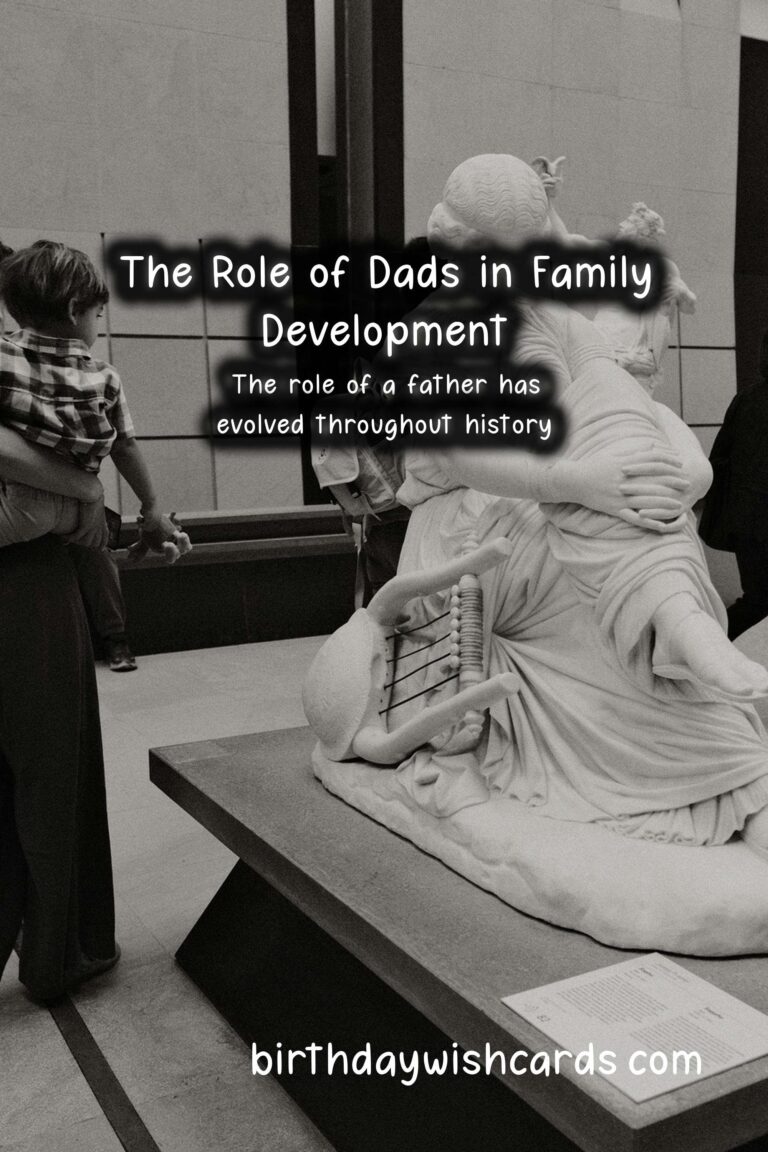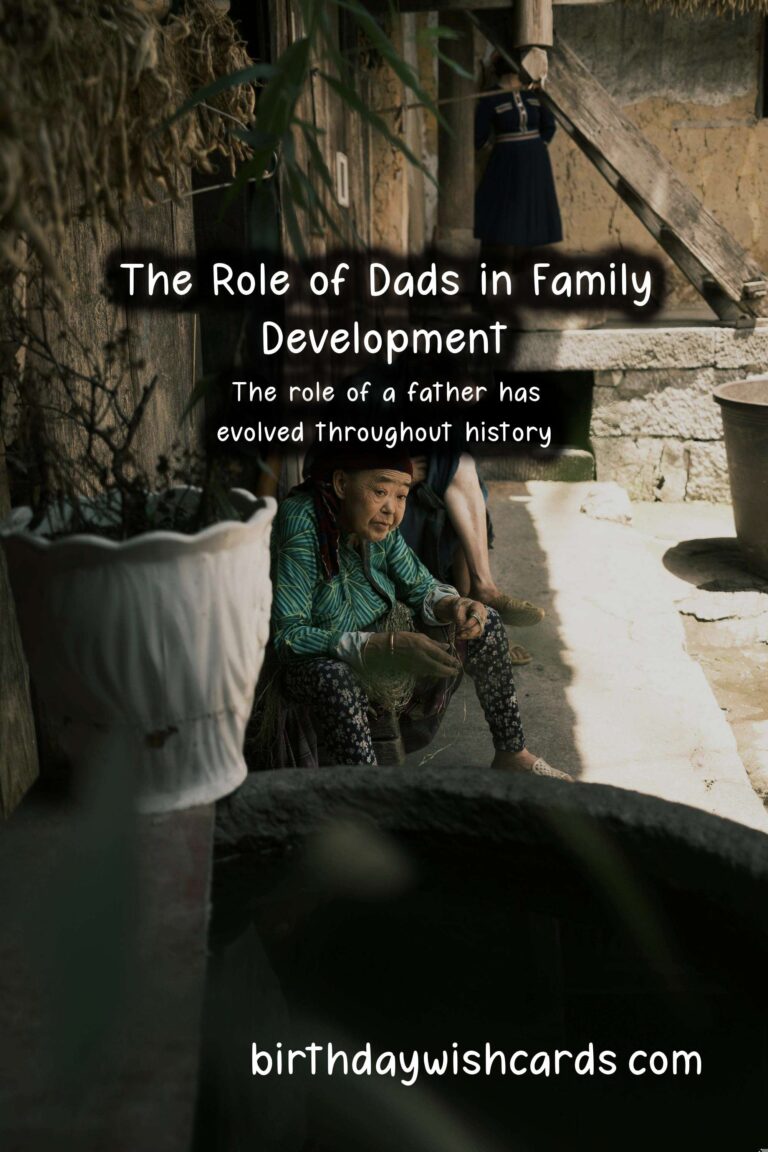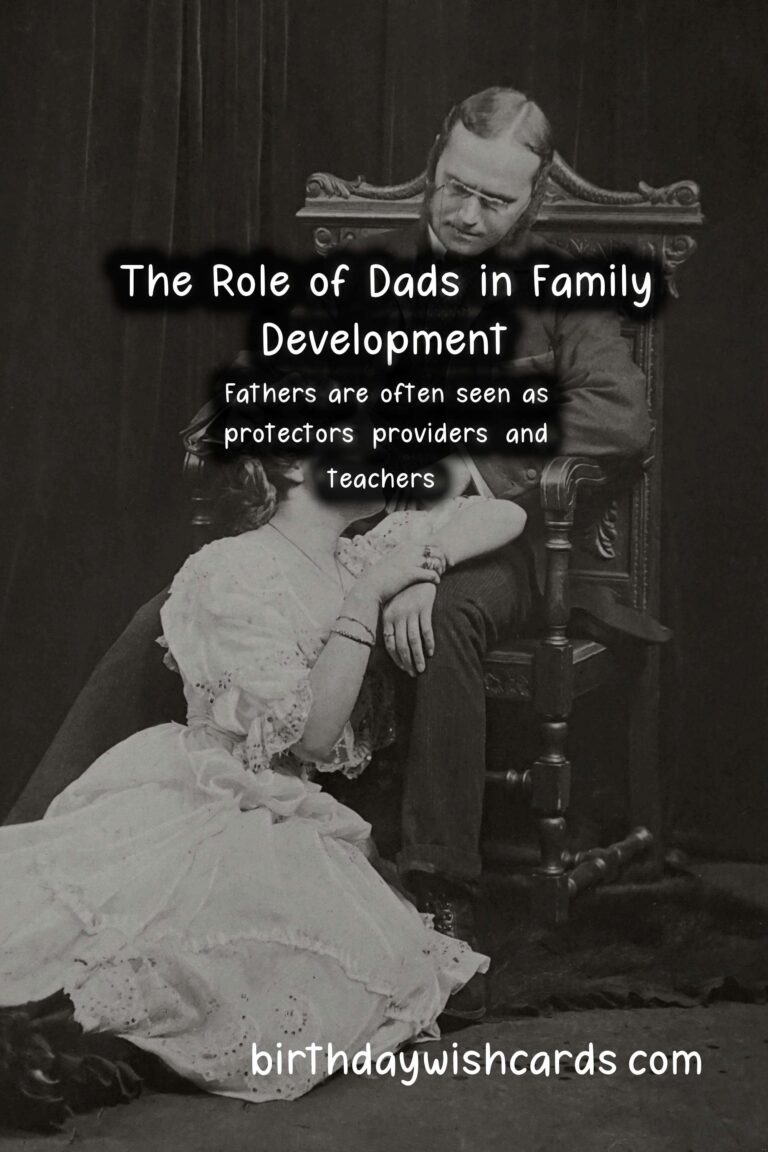
Throughout history, the role of a father has evolved, yet its significance remains deeply rooted in cultural values and traditions. Fathers are often seen as protectors, providers, and teachers, shaping the lives of their children in ways that are profound and lasting.
Ancient Perspectives on Fatherhood
In ancient civilizations, fathers held a crucial role in family dynamics. In many cultures, the father was the head of the household, responsible for making important decisions and offering guidance. For instance, in Roman society, the father was bestowed the title of ‘paterfamilias,’ signifying his authority over the family.
This authority often extended to legal matters, where fathers had the power to determine the fate of their children, including decisions about marriage and inheritance.
Fatherhood in Various Cultures
Different cultures have distinct interpretations of fatherhood. In many Indigenous cultures, fathers are seen not only as caregivers but also as spiritual leaders who guide their children in connecting with nature and their heritage.
In contrast, modern industrialized societies often reduce fatherhood to financial provider roles, overshadowing the emotional and nurturing aspects that are equally important.
The 20th Century and Changing Roles
The 20th century saw a significant shift in the perception of fatherhood. World Wars, economic changes, and feminist movements influenced how fathers engaged with their families. The rise of the stay-at-home dad and shared parenting roles became more common as societal norms evolved.
Television and media representations began to reflect these changes, with shows depicting dads as more involved in parenting, challenging the traditional, stoic images of fathers.
Modern Fatherhood
Today, fatherhood is recognized as a nuanced journey filled with challenges and rewards. Dads are expected to maintain a balance between career obligations and family time, all while fostering emotional connections with their children.
The concept of ‘dad humor’ has emerged, signifying a unique way in which fathers bond with their children through laughter and light-heartedness, reflecting their personality and character.
The Importance of Dads in Child Development
Numerous studies have shown that active father involvement positively impacts child development. Children with engaged fathers tend to demonstrate better social skills, higher academic achievement, and enhanced emotional regulation.
The Emotional Connection
A father’s love and presence can significantly shape a child’s self-esteem and overall mental health. Children often look up to their dads for guidance, and a strong emotional bond can foster resilience and confidence in facing life’s challenges.
Celebrating Fathers: Father’s Day
Father’s Day, celebrated in many countries around the world, emphasizes the importance of fathers. This day serves as an opportunity for families to express gratitude and love towards fathers. The origins of Father’s Day can be traced back to the early 20th century when it was popularized by communities wishing to honor fathers.
Conclusion: The Everlasting Impact of Fathers
The significance of dads remains clear: they are instrumental in shaping the next generation. Whether it’s through guidance, love, or support, the influence of a father can last a lifetime. Understanding the historical context and cultural variations of fatherhood allows us to appreciate the vital role dads play in society.
As we continue to navigate modern parenting, celebrating and recognizing fathers becomes essential in promoting healthy family dynamics and ensuring a supportive environment for children to thrive.
The role of a father has evolved throughout history. Fathers are often seen as protectors, providers, and teachers. 












